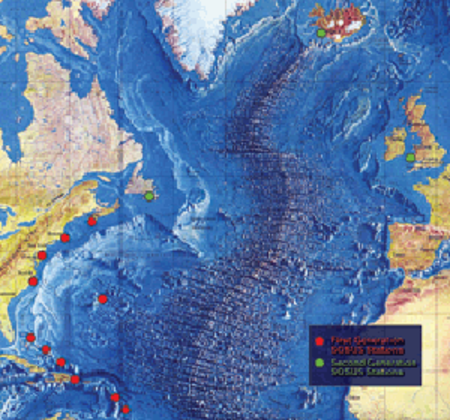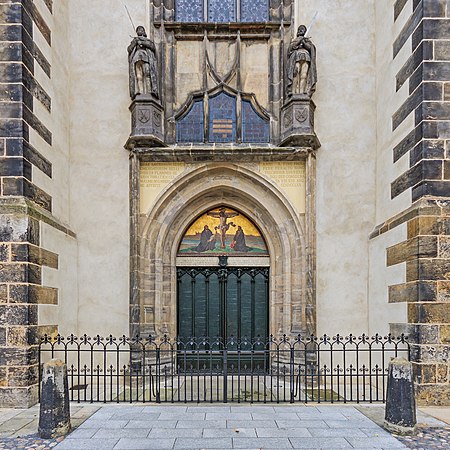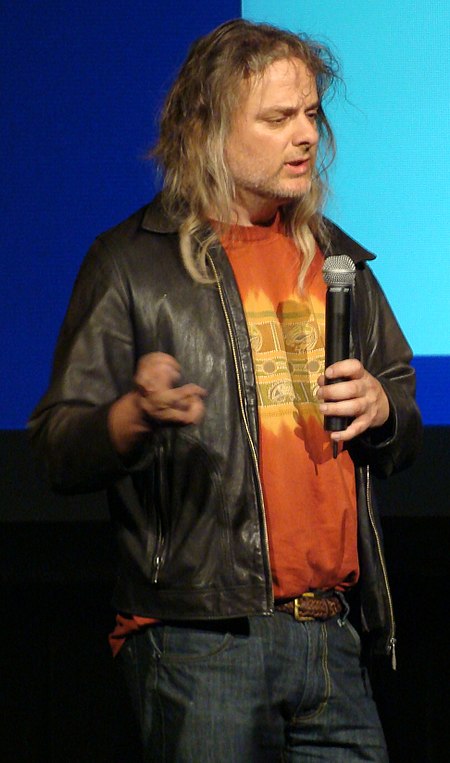Theodor Wolff
| |||||||||||||||||||
Read other articles:

Artikel ini tidak memiliki referensi atau sumber tepercaya sehingga isinya tidak bisa dipastikan. Tolong bantu perbaiki artikel ini dengan menambahkan referensi yang layak. Tulisan tanpa sumber dapat dipertanyakan dan dihapus sewaktu-waktu.Cari sumber: Ruzaidin Noor – berita · surat kabar · buku · cendekiawan · JSTOR M. Ruzaidin Noor Wali Kota Banjarbaru 2Masa jabatan11 Agustus 2010 – 11 Agustus 2015WakilOgi Fajar Nuzuli PendahuluRudy Resna…

Eyong Enoh Informasi pribadiNama lengkap Eyong Tarkang Enoh[1]Tanggal lahir 23 Maret 1986 (umur 37)Tempat lahir Kumba, KamerunTinggi 178 m (584 ft 0 in)Posisi bermain GelandangInformasi klubKlub saat ini Antalyaspor (pinjaman dari Ajax)Nomor 33Karier junior2002–2003 Tiko Youngstars2003–2004 Mount CameroonKarier senior*Tahun Tim Tampil (Gol)2003–2004 Mount Cameroon FC 18 (4)2004–2005 Mağusa Türk Gücü 36 (1)2005–2006 Türk Ocağı Limasol 0 (0)2006–2008 …

Artikel ini sebatang kara, artinya tidak ada artikel lain yang memiliki pranala balik ke halaman ini.Bantulah menambah pranala ke artikel ini dari artikel yang berhubungan atau coba peralatan pencari pranala.Tag ini diberikan pada November 2022. Ai XiaLahirYan Yinan(1912-11-29)29 November 1912Tianjin, ChinaMeninggal15 Februari 1934(1934-02-15) (umur 21)Shanghai, ChinaTahun aktif1932–1934 Dalam artikel ini, nama keluarganya adalah Ai. Ai Xia (Hanzi: 艾霞; 29 November 1912 &…

Katedral OriaKatedral-Basilika Santa Maria Diangkat ke SurgaItalia: Basilika Cattedrale di S. Maria Assunta di Cielocode: it is deprecated Katedral OriaLokasiOriaNegaraItaliaDenominasiGereja Katolik RomaArsitekturStatusKatedralStatus fungsionalAktifAdministrasiKeuskupanKeuskupan Oria Katedral Oria (Italia: Basilica di Santa Maria Assuntacode: it is deprecated ) adalah sebuah gereja katedral Katolik yang terletak di Oria, provinsi Brindisi, Apulia, Italia. Katedral ini didedikasikan untuk Maria D…

Letak sensor SOSUS pertama. SOSUS, akronim dari Sound Surveillance System (Sistem Pengawasan Suara), adalah rangkaian pos pendengaran bawah laut di sepanjang Samudra Atlantik Utara dekat Greenland, Islandia, dan Britania Raya — disebut celah GIUK. Mulanya dijalankan oleh Angkatan Laut Amerika Serikat untuk melacak kapal selam Uni Soviet yang harus melewati celah tersebut agar mereka dapat disergap di sebelah barat. Lokasi lain di Samudra Atlantik dan Pasifik juga memiliki stasiun SOSUS.[1&…

Bagian dari seriProtestanisme Teologi Topik Aniaya Budaya Demografi Eklesiologi Kebangunan Dahsyat Kritik Reformasi Sejarah Cabang Besar Advent Anabaptis Anglikan Baptis Kalvinis Lutheran Metodis Pentakosta Cabang Kecil Irvingian Pergerakan Kekudusan Protestan Timur Protoprotestanisme (Husite dan Waldensian) Schwenkfelder Serikat Handai-Tolan Serikat Persaudaraan Plymouth Serikat Persaudaraan Schwarzenau Siswa-Siswi Alkitab Lain-lain Pergerakan Berbasis Luas Injili Karismatik Neokarismatik Perke…

Linda EmranLahirLinda Emran Abiprajadi1958 (1958)JakartaMeninggal18 April 2021(2021-04-18) (umur 62–63) [1]Jakarta, IndonesiaAlmamaterUniversitas Indonesia (Arsitektur)[2]Tinggi5 ft 7 in (1,70 m)[3]Pemenang kontes kecantikanWarna rambutHitamWarna mataHitamKompetisiutamaPuteri Remaja 1976(Penghargaan Personaliti)Miss Asia Quest Indonesia 1977(Pemenang)Miss Asia Quest (Miss Asia Pacific) 1977(Pemenang) Ir. Linda Emran Abiprajadi (lebih dikenal seb…

School district in the City of St. Louis, Missouri This article needs additional citations for verification. Please help improve this article by adding citations to reliable sources. Unsourced material may be challenged and removed.Find sources: St. Louis Public Schools – news · newspapers · books · scholar · JSTOR (March 2010) (Learn how and when to remove this template message) Saint Louis Public School DistrictLocation801 N 11th Street St. Louis, Misso…

N'KoJenis aksara alfabet BahasaN'KoPenciptaSolomana KantePeriode1949 hingga sekarangArah penulisanKanan ke kiriISO 15924ISO 15924Nkoo, 165 , N’KoPengkodean UnicodeNama UnicodeN'KoRentang UnicodeU+07C0–U+07FF Artikel ini mengandung transkripsi fonetik dalam Alfabet Fonetik Internasional (IPA). Untuk bantuan dalam membaca simbol IPA, lihat Bantuan:IPA. Untuk penjelasan perbedaan [ ], / / dan ⟨ ⟩, Lihat IPA § Tanda kurung dan del…

Sporting event delegationQatar at the2015 World Championships in AthleticsWA codeQATin BeijingCompetitors6Medals Gold 0 Silver 0 Bronze 0 Total 0 World Championships in Athletics appearances1983198719911993199519971999200120032005200720092011201320152017201920222023← 2013 2017 → Qatar competed at the 2015 World Championships in Athletics in Beijing, China, from 22–30 August 2015. Results (q – qualified, NM – no mark, SB – season best) Men Track and road events Athlete Event H…

LGBT rights in ThailandThailandStatusLegal since 1956;age of consent equalized in 1997Gender identityChange of legal gender not recognised even if the applicant has undergone sex reassignment surgery (bill proposed to allow gender changes)[1][2]MilitarySince 2005Discrimination protectionsSexual orientation and gender identity protections since 2015Family rightsRecognition of relationshipsNo current legal recognition;Same-sex marriage rights proposed in 2024[3][4]&…

Questa voce o sezione sull'argomento attori statunitensi non cita le fonti necessarie o quelle presenti sono insufficienti. Puoi migliorare questa voce aggiungendo citazioni da fonti attendibili secondo le linee guida sull'uso delle fonti. Segui i suggerimenti del progetto di riferimento. Jim Caviezel nel 2012 James Patrick Caviezel, detto Jim (Mount Vernon, 26 settembre 1968), è un attore statunitense. Indice 1 Biografia 1.1 Vita privata 2 Filmografia 2.1 Cinema 2.2 Televisione 3 Riconosc…

Edward SaidSaid di Sevilla, 2002LahirEdward Wadie Said(1935-11-01)1 November 1935Jerusalem,Mandat Britania atas Palestina(sekarang Israel / Palestina)Meninggal24 September 2003(2003-09-24) (umur 67)New York City, New York State, Amerika SerikatPendidikan Princeton University (AB) Harvard University (MA, PhD) Suami/istriMariam C. SaidAnakNajla Said Wadie SaidEraFilsafat abad ke-20KawasanFilsafat baratAliran Filsafat kontinental Pascakolonialisme Gagasan penting Oksidentalisme Orientalis…

Season of television series Season of television series The BachelorSeason 20Promotional posterStarringBen HigginsPresented byChris HarrisonNo. of contestants28WinnerLauren BushnellRunner-upJoelle JoJo Fletcher No. of episodes12 (including 2 specials)ReleaseOriginal networkABCOriginal releaseJanuary 4 (2016-01-04) –March 14, 2016 (2016-03-14)Additional informationFilming datesSeptember 24 (2015-09-24) –November 18, 2015 (2015-11-18)Season chronology← Prev…

Policy on permits required to enter Indonesia This article is part of a series on thePolitics ofIndonesia National government Constitution of Indonesia Law Taxation Pancasila (national philosophy) Executive President of Indonesia Joko Widodo (PDI-P) Vice President of Indonesia Ma'ruf Amin (Ind.) Cabinet Regional government Governors Legislature People's Consultative Assembly Speaker Bambang Soesatyo (Golkar) House of Representatives Speaker Puan Maharani (PDI-P) Regional Representative Council S…

Quillajaceae Quillaja saponaria Klasifikasi ilmiah Kerajaan: Plantae (tanpa takson): Tracheophyta (tanpa takson): Angiospermae (tanpa takson): Eudikotil (tanpa takson): Rosid Ordo: Fabales Famili: Quillajaceae Genera lihat teks. Quillajaceae adalah salah satu suku anggota tumbuhan berbunga. Menurut sistem klasifikasi APG II suku ini termasuk ke dalam bangsa Fabales, klad euRosidae I. Wikimedia Commons memiliki media mengenai Quillajaceae. Pengidentifikasi takson Wikidata: Q13634380 Wikispecies: …

1982 labor strike in the Greater Los Angeles area 1982 animators' strikeDateAugust 5 – October 16, 1982(2 months, 1 week and 4 days)LocationGreater Los Angeles, California, United StatesCaused byRunaway productionsGoals Protections against runaway productions Methods Picketing Strike action Walkout Resulted inStrike fails, union agrees to new contracts favorable to the studiosParties Motion Picture Screen Cartoonists Local 839 Multiple animation studios in the United States The …

Questa voce o sezione sull'argomento filosofi non cita le fonti necessarie o quelle presenti sono insufficienti. Puoi migliorare questa voce aggiungendo citazioni da fonti attendibili secondo le linee guida sull'uso delle fonti. Segui i suggerimenti del progetto di riferimento. David John Chalmers David John Chalmers (Australia, 20 aprile 1966) è un filosofo australiano, appartenente all'area analitica, particolarmente attivo nell'ambito della filosofia della mente. Il suo lavoro è incent…

关于位於加勒比海的荷屬島嶼,请见「薩巴」。 沙巴Sabah州 州旗州徽颂歌:Sabah Tanah Airku《沙巴我的故土》 沙巴 马来西亚其它州属坐标:5°18′N 117°00′E / 5.3°N 117°E / 5.3; 117首府亞庇省份 列表 西海岸省山打根省古達省內陸省斗湖省 政府[1][2] • 邦元首朱哈·马希鲁丁 • 首席部长哈芝芝·诺面积[3]&#…

斯洛博丹·米洛舍维奇Слободан МилошевићSlobodan Milošević 南斯拉夫联盟共和国第3任总统任期1997年7月23日—2000年10月7日总理拉多耶·孔蒂奇莫米尔·布拉托维奇前任佐兰·利利奇(英语:Zoran Lilić)继任沃伊斯拉夫·科什图尼察第1任塞尔维亚总统任期1991年1月11日[注]—1997年7月23日总理德拉古京·泽莱诺维奇(英语:Dragutin Zelenović)拉多曼·博若维奇(英语:Radoman Božov…

